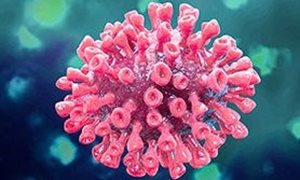18 June 2019
In May 2013, they implemented exome sequencing in routine diagnostics for patients suffering from PIDs. This study reports the clinical utility and diagnostic yield for a heterogeneous group of 254 consecutively referred PID patients from 249 families. For the majority of patients, the clinical diagnosis was based on clinical criteria including rare and/or unusual severe bacterial, viral, or fungal infections, sometimes accompanied by autoimmune manifestations. Functional immune defects were interpreted in the context of aberrant immune cell populations, aberrant antibody levels, or combinations of these factors.
For 62 patients (24%), exome sequencing identified pathogenic variants in well-established PID genes. An exome-wide analysis diagnosed 10 additional patients (4%), providing diagnoses for 72 patients (28%) from 68 families altogether. The genetic diagnosis directly indicated novel treatment options for 25 patients that received a diagnosis (34%).
Exome sequencing as a first-tier test for PIDs granted a diagnosis for 28% of patients. Importantly, molecularly defined diagnoses indicated altered therapeutic options in 34% of cases. In addition, exome sequencing harbors advantages over gene panels as a truly generic test for all genetic diseases, including in silico extension of existing gene lists and re-analysis of existing data.
 Diagnosis of primary immunodeficiencies (PIDs) is complex and cumbersome yet important for the clinical management of the disease. Exome sequencing may provide a genetic diagnosis in a significant number of patients in a single genetic test.
Diagnosis of primary immunodeficiencies (PIDs) is complex and cumbersome yet important for the clinical management of the disease. Exome sequencing may provide a genetic diagnosis in a significant number of patients in a single genetic test.
In May 2013, they implemented exome sequencing in routine diagnostics for patients suffering from PIDs. This study reports the clinical utility and diagnostic yield for a heterogeneous group of 254 consecutively referred PID patients from 249 families. For the majority of patients, the clinical diagnosis was based on clinical criteria including rare and/or unusual severe bacterial, viral, or fungal infections, sometimes accompanied by autoimmune manifestations. Functional immune defects were interpreted in the context of aberrant immune cell populations, aberrant antibody levels, or combinations of these factors.
For 62 patients (24%), exome sequencing identified pathogenic variants in well-established PID genes. An exome-wide analysis diagnosed 10 additional patients (4%), providing diagnoses for 72 patients (28%) from 68 families altogether. The genetic diagnosis directly indicated novel treatment options for 25 patients that received a diagnosis (34%).
Exome sequencing as a first-tier test for PIDs granted a diagnosis for 28% of patients. Importantly, molecularly defined diagnoses indicated altered therapeutic options in 34% of cases. In addition, exome sequencing harbors advantages over gene panels as a truly generic test for all genetic diseases, including in silico extension of existing gene lists and re-analysis of existing data.
-
Want to know more about these subjects? Click on the buttons below for more news.
Related news items

Epigenetics: Immunization is passed on to offspring Mice transmit adaptations to infections to next generations
19 October 2021 Does an infection affect the immunization of subsequent generations? It does, according to research now published in Nature Immunology. read more
Trained immunity: a tool for reducing susceptibility to and the severity of SARS-CoV-2 infection
17 February 2021 In a review in Cell Mihai Netea, Frank van de Veerdonk, Reinout van Crevel and Jorge Dominguez Andres propose that induction of trained immunity by whole-microorganism vaccines may represent an important tool for reducing susceptibility to and severity of SARS-CoV-2. read more
Invasive fungal infections in influenza and COVID-19
8 July 2020 The Aspergillus fungus is found in the lungs of many COVID patients. A parallel occurs with influenza patients, who often develop a serious fungal infection. Although such a serious fungal infection seems to occur less frequently in COVID-patients, alertness remains necessary, read more
Interleukin-37 plays a rol in the pathogenesis and treatment of gout
11 March 2020 RIMLS researchers Leo Joosten, Viola Klück and Rosanne van Deuren, in collaboration with the Dept. of Human Genetics, discovered that rare genetic variants in interleukin-37 link the anti-inflammatory cytokine to the pathogenesis and treatment of gout. read more
Alexander Hoischen appointed as associate professor
28 May 2019 Alexander Hoischen, affiliated with the department of Human Genetics and the department of Internal Medicine, has been appointed as associate professor ‘Genomic technologies & immuno-genomics’. read more
